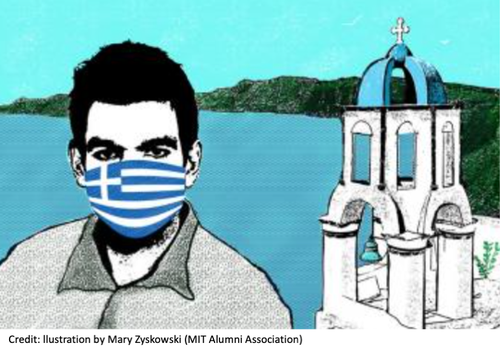AI Guided Greece’s Covid Testing

Kimon Drakopoulos SM ’11, PhD ’16 believes that at the start of the Covid-19 pandemic, humans were as vulnerable to the novel coronavirus as they had been to the Spanish flu that caused the pandemic a century ago. “We had no vaccine and no cure,” he says. “Our only defense was a face mask, and they had figured that out even in 1918.” And yet, he adds, we do have a powerful tool now that they didn’t have then––the technology to collect and analyze large amounts of data.
That’s Drakopoulos’s specialty—he completed his doctoral research at MIT’s Laboratory for Information and Decision Systems (LIDS). So last April, when he read about plans to reopen the borders of Greece, his homeland, he sent an unsolicited email to the Greek prime minister saying that he’d like to help. Three hours later, he got a reply saying, “Let’s talk.”
An assistant professor of data sciences and operations at the University of Southern California’s Marshall School of Business, Drakopoulos went on to partner with the Greek government and lead the development of EVA, a tool based on machine learning that guided distribution of Greece’s limited Covid-testing resources at the country’s borders. The work of his four-member team (which also included Hamsa Bastani, Vishal Gupta PhD ’14, and Jon Vlachogiannis) served as a targeted testing, surveillance, and early-warning system that allowed Greece to more safely open its borders during the summer, boosting the country’s economy by enabling it to maximize the remainder of its tourist season.
For more, please click here.

Professor Kimon Drakopoulos
